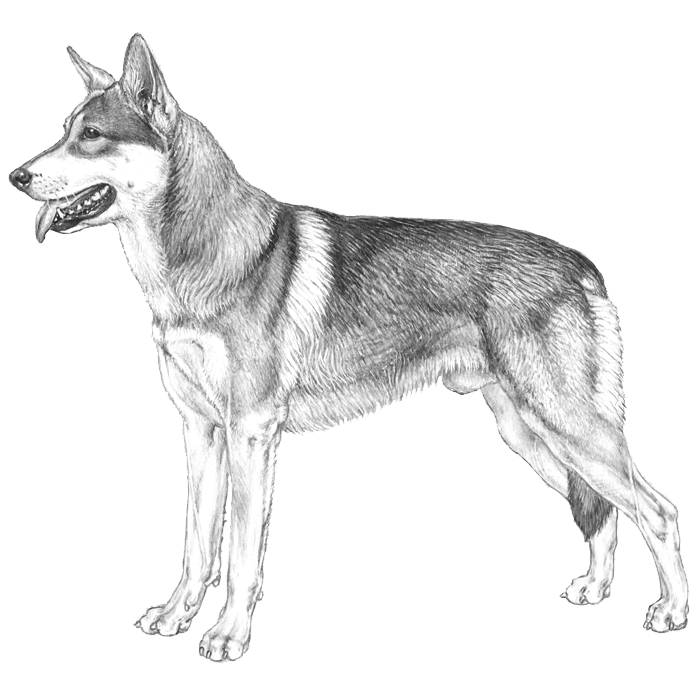Urate Kidney & Bladder Stones
This condition affects how uric acid is processed. Affected dogs may be more likely to develop urinary stones, especially without dietary management.
-
Signs and symptoms
Affected dogs will show no clinical signs of disease in the early stages. As stones form, dogs will often urinate more frequently, urinate in inappropriate places, and possibly have blood in their urine. If a urinary obstruction forms, they are unable to urinate despite frequent straining. This is a medical emergency.
Most dogs are adults before they show any signs of urinary issues (4-6 years on average). -
Diagnosis
Urate stones are invisible on X-rays and must be diagnosed by a veterinarian via ultrasound or urine sediment analysis. If left undiagnosed, bladder stones can lead to urinary obstruction, which can be life-threatening.
-
Treatment
If caught early, it is responsive to dietary management. Surgical intervention is often required when stones or an obstruction forms.
-
What to do if your dog is at risk
Actions
- Talk to your vet about your dog’s HUU result so you can work together to plan ongoing care and monitoring.
- Your vet may recommend a special diet to help reduce uric acid levels and prevent urinary stone formation.
- Make sure your dog has access to plenty of fresh water and regular opportunities to urinate.
- Watch for changes in urination, such as straining, accidents, or blood in the urine, and contact your vet if you notice any of these signs.
-
Genetic Information
This mutation was first described in the Dalmatian.
This mutation is inherited in an autosomal recessive manner; that is, a dog requires two copies of the mutation to show signs of the disease.
Gene names:
SLC2A9 (Exon 5) ‐ chr
Inheritance type:
recessive
Citations:
-
Breeds affected
This health condition affects the following breeds
-
American Bully

-
American Pit Bull Terrier

-
American Staffordshire Terrier

-
Australian Shepherd

-
Biewer Terrier

-
Black Russian Terrier

-
Boerboel

-
Alapaha Blue Blood Bulldog

-
American Bulldog

-
Bulldog

-
French Bulldog

-
Catahoula Leopard Dog

-
Coton de Tulear

-
Czechoslovakian Vlcak

-
Dalmatian

-
Danish-Swedish Farmdog

-
Drentsche Patrijshond

-
English Shepherd

-
Finnish Lapphund

-
German Shepherd Dog

-
Giant Schnauzer

-
Labrador Retriever

-
Lagotto Romagnolo

-
Mastiff

-
Miniature/MAS-type Australian Shepherd

-
Munsterlander (Large)

-
Olde English Bulldogge

-
Pomeranian

-
Russell-type Terrier

-
Saarloos Wolfdog

-
Shiloh Shepherd

-
Spanish Water Dog

-
Swedish Vallhund

-
Weimaraner

-
White Shepherd

-
Wirehaired Vizsla

-
Yorkshire Terrier

-
Learn about your dog’s unique genetic health
Dog owners
Breed identification, health and trait insights, personalized care recommendations, and the world’s first canine relative finder—all in one leading dog DNA test.
Learn about the report for dog ownersShop the test
Breeding programs
Embark’s test for breeding programs is one comprehensive DNA test designed with your needs in mind.
Learn about the report for breedersShop the test















